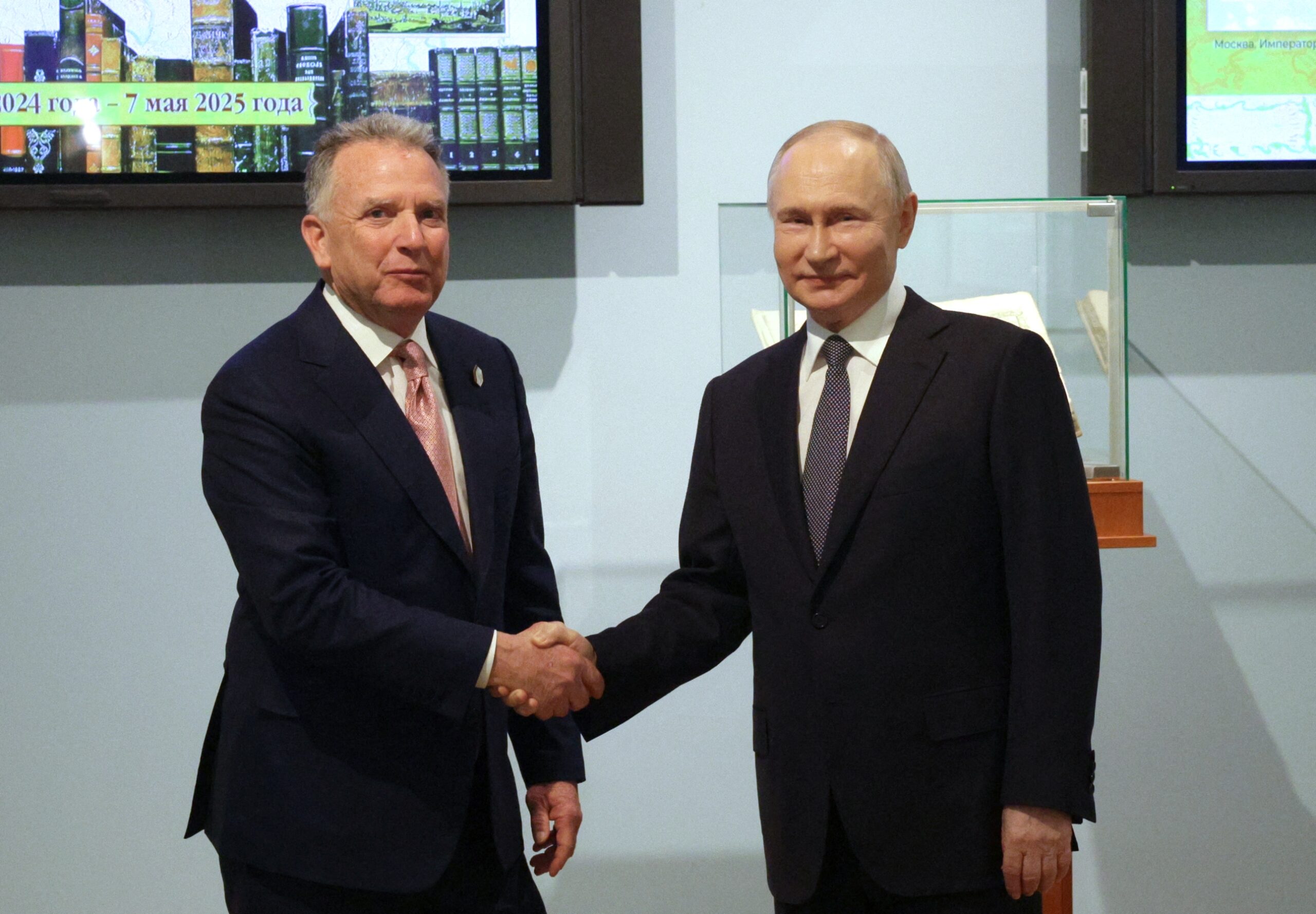
A plan put forward by U.S. envoy Steve Witkoff to end the war started by Russian President Vladimir Putin gives Moscow the green light to occupy swathes of Ukraine, a charity told Newsweek.
Yuriy Boyechko, the CEO of Hope for Ukraine, which provides aid to the war-torn country, told Newsweek that it was “completely unacceptable that top U.S. envoy would embrace such evil demands from Russia.”
The proposal would give Moscow ownership of four eastern regions of Ukraine it claims to have annexed but does not fully control.
Newsweek has contacted the U.S. State Department for comment.
GAVRIIL GRIGOROV/Getty Images
Why It Matters
In September 2022, Putin said Russia had annexed the Ukrainian regions of Zaporizhzhia, Kherson, Donetsk and Luhansk, which it still does not fully control.
Witkoff received criticism last month after telling broadcaster Tucker Carlson that referenda held in those regions showed people there wanted to be part of Russia. The U.S. State Department has long dismissed the ballots as “sham referenda and annexations.”
A report that Witkoff is open to allowing Russia to keep the regions if it means fulfilling Trump’s pledge to end the war quickly has raised concerns that the U.S. will lobby for the Kremlin’s demands in ongoing peace talks.
What To Know
On Friday, the U.S. envoy met with Putin in St. Petersburg to discuss the war in Ukraine. Earlier this month, Witkoff conveyed the proposal to U.S. President Donald Trump after meeting with Russian envoy Kirill Dmitriev in Washington, Reuters reported.
Witkoff argued that the quickest way to a ceasefire would be to give Moscow ownership of the four Ukrainian regions it claims to have annexed.
Boyechko said: “Steve Witkoff is basically saying to over 800,000 civilians living in the city of Zaporizhzhia, the city of Kherson, and surrounding areas controlled by Ukraine, to self-deport and for the Ukrainian government to give the green light for Russia to occupy these Ukrainian cities and villages.”
Citing U.S. officials and people familiar with the situation, Reuters reported that General Keith Kellogg, Trump’s Ukraine envoy, had pushed back against the plan because Kyiv would never agree to unilaterally cede ownership of the territories, and Trump did not change U.S. strategy.
Olena Halushka, a co-founder of the International Centre for Ukrainian Victory, wrote on X, formerly Twitter, that the proposal would be “rewarding the aggressor for an illegal war.”
X user Kate from Kharkiv said the move would “give Putin everything he wants, essentially gifting him the Ukrainian territories he doesn’t control.”
Witkoff had floated the idea of handing Russia the four Ukrainian regions during an interview with Carlson on March 21, shocking U.S. national security officials.
What People Are Saying
Yuriy Boyechko, the CEO of Hope for Ukraine, told Newsweek: “Steve Witkoff cannot be involved in any capacity during these peace talks because he has chosen to lobby Russian interests in these peace negotiations.”
Olena Halushka, a co-founder of the International Centre for Ukrainian Victory, wrote on X: “So the Trump-Witkoff ‘Art of the Peace Deal’ would mean Ukraine voluntarily giving up Zaporizhzhia—a city of nearly 700,000 people—along with Kherson, Kramatorsk, and many other towns and villages Russia can’t even occupy?”
What Happens Next
Following Friday’s talks, the Kremlin said Putin and Witkoff discussed “aspects of the Ukrainian settlement” without providing further details.
White House press secretary Karoline Leavitt said on Friday that Trump had been “continually frustrated” with both sides over peace talks.
